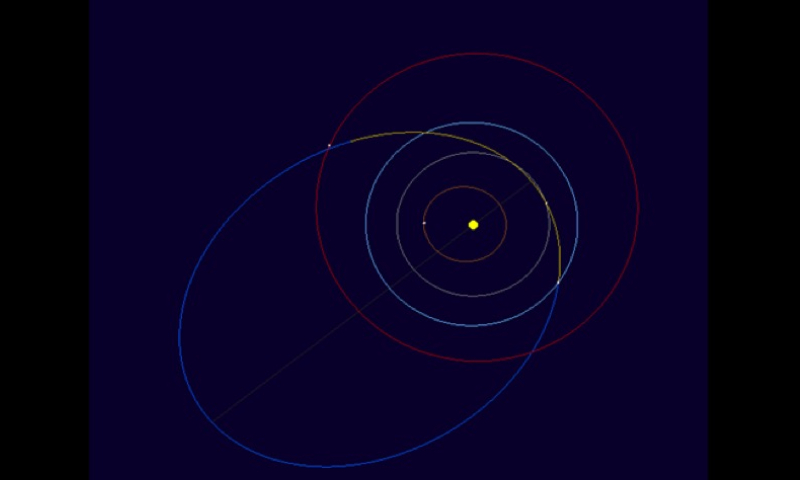

Track simulation diagram of near-Earth asteroid. (Photo: Website of Xinjiang Astronomical Observatory)
The latest defense operation against a potential asteroid impact reflects China's ability to quickly initiate relay tracking observations thanks to its deployment of widespread observation stations across the country and advanced network monitoring technologies, Chinese experts involved in the tracking task told the Global Times on Sunday, noting that international cooperation is crucial in dealing with such emergency situations.
On early Thursday, a small asteroid approximately 1.2 meters in diameter entered the Earth's atmosphere at a speed of approximately 20 kilometers per second and exploded at an altitude of about 25 kilometers northeast of the Philippines.
It was the first time that China's monitoring network has conducted relay tracking observations for an asteroid warning, and also the ninth asteroid that humankind has ever spotted before impact, according to media reports. It marked significant progress in China's asteroid defense efforts, Science and Technology Daily reported on Saturday.
The asteroid, named 2024 RW1, was first discovered by the Catalina Sky Survey (CSS) at 1:43 pm Beijing time on Wednesday and at 8 pm, a near-Earth telescope of the Purple Mountain Observatory started tracking the asteroid's trajectory. Meanwhile, telescopes located at the Ngari Prefecture in Southwest China's Xizang Autonomous Region joined the tracking, providing ephemeris guidance for radar observations, Zhao Haibin, a researcher at the Purple Mountain Observatory, Chinese Academy of Sciences, told the Global Times.
China's ability to quickly initiate the relay observation benefited from the deployment of observation stations across various time zones, providing a relatively comprehensive relay tracking capability, Zhao said. Also, by leveraging the advantages of networked monitoring equipment, scientists were able to conduct position forecasting, tracking, and data processing, he added.
The successful handling of impact this time was the result of joint global actions by observatories in the US, Chile, and Australia together with China, Zhao said, "The recent series of success in early warning and avoidance against asteroid impact cannot be done without joint efforts by global participants."
China joined the International Asteroid Warning Network (IAWN) in 2018, an organization that aims to strengthen global cooperation and data sharing in the field of near-Earth object observation and response to potential impact threats. (Global Times)

86-10-68597521 (day)
86-10-68597289 (night)

52 Sanlihe Rd., Xicheng District,
Beijing, China (100864)

